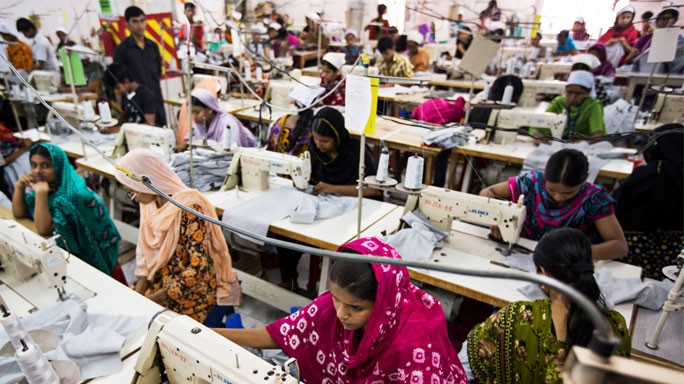At a women's cafe in Dhaka, Ayesha (not her real name) and a handful of other women are waiting to meet German Minister for Economic Cooperation and Development Gerd Mueller. They are all victims of the 2013 Rana Plaza factory disaster that claimed the lives of more than 1000 people.
For these garment workers, it's been a usual hard day at work. They often work up to 14 hours a day. But they're pleased to have the opportunity to voice their concerns and to learn about their rights. The women's cafe was set up precisely for this reason.
This and other effective and practical measures are part of a so-called "Textile Partnership" initiated by Mueller designed to make a difference on the ground.
Dilemma over responsibility
The disaster at Rana Plaza in April 2013 shook the world. Many consumers realized that a T-shirt which cost just euros, or a pair of jeans that cost 15 euros, could not be produced without someone being exploited in the supply chain.
Following the Rana Plaza disaster, the usual blame game flared up. But just who is responsible? It became clear that to achieve a meaningful and effective solution, all stakeholders had to be on board. It had to be a "win-win" solution for everyone: the workers, the suppliers, the retailers and the consumers. It was in this context that the 'Textile Partnership' emerged.
Doing nothing was no longer an option. Public opinion called for a moral obligation and that level of pressure brought the stakeholders together. Each party was won over by the German minister's plans for a textile alliance. Chains like Tchibo, ALDI, H&M and C&A stood to benefit from an improved public image and therefore more business. The textile factories would benefit too. And of course the biggest beneficiaries would be the garment workers themselves.
See more at:
DW





